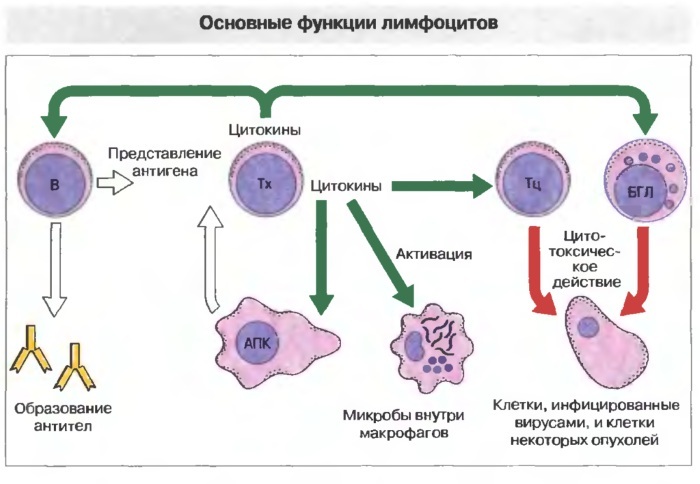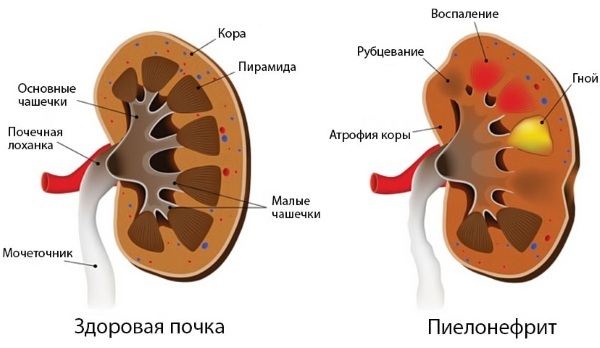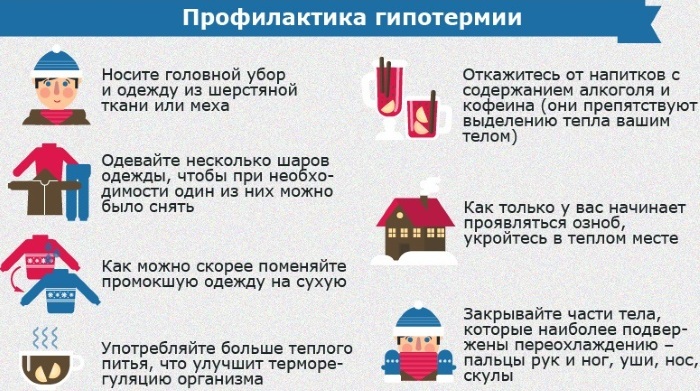Medicinal hepatitis - severe pathology, the cases of which have become more frequent with the development of the pharmacology market. The danger of the disease is that from the moment of taking medications until the first symptoms of the disease appear, it can take several days or several years.
However, with a timely visit to a doctor who will conduct a thorough diagnosis and select a treatment method, it is quite possible to cope with the problem and completely restore health.
Record content:
- 1 What is medicinal hepatitis?
- 2 Causes
- 3 Symptoms and forms
- 4 Complications
- 5 Drugs that are the culprit of medicinal hepatitis
-
6 Diagnosis of the disease
- 6.1 Instrumental methods
- 6.2 Laboratory Methods
- 6.3 Differential diagnosis
-
7 Treatment of medicinal hepatitis
- 7.1 Detoxification
- 7.2 Hepatoprotectors
- 8 Folk remedies
- 9 Forecast
- 10 Video about toxic hepatitis
What is medicinal hepatitis?
Medicinal hepatitis is a dangerous condition that requires serious therapy. The inflammatory process in the liver develops after taking certain medications containing components toxic to the organ.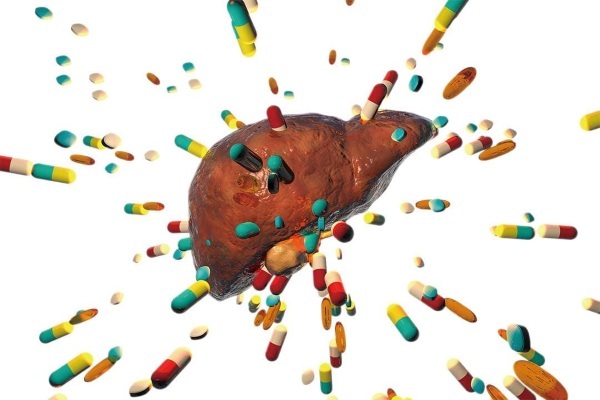
The development of pathology depends on the properties of specific medications, the dose of the drug, the duration of treatment, and the individual characteristics of the organism. Most often, the disease affects the fairer sex.
Causes
The disease develops with prolonged or constant use of certain drugs. The risk of toxic damage to the organ increases with the simultaneous use of several agents.
At risk are people who:
- there are bad habits (alcohol abuse, smoking);
- the functions of the liver and kidneys are impaired, there are their chronic diseases;
- increased susceptibility to drug components;
- impaired blood circulation in the liver;
- there is excess weight (the risk of developing pathology increases with fatty hepatosis, which many people with obesity suffer from).
Also contributing to the problem is:
- the patient's genetic predisposition to gastrointestinal pathologies;
- frequent stressful situations, depression;
- prescribing drugs without taking into account their compatibility or uncontrolled taking them.
Symptoms and forms
Medicinal hepatitis (symptoms and treatment have their own characteristics, depending on the nature of the course of the disease) can be:
- sharp. In turn, it is divided into cytolytic (pathology is accompanied by necrosis and fatty hepatosis), mixed, cholestatic (with impaired outflow of bile). The acute form of the disease occurs with a single hit of toxic substances in a large dose. The first signs of pathology are found 3-5 days after poisoning;
-
chronic. It develops with prolonged ingestion of small doses of toxins. It may take several months or years before the first manifestations of the disease appear. The outcome of this form of pathology is often liver cirrhosis.
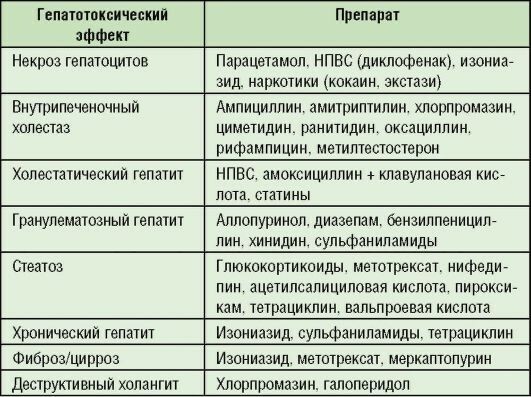
Medicinal hepatitis (symptoms and treatment of non-viral and viral pathologies are similar) in acute course is manifested by dyspeptic disorders. The patient suffers from moderate pain, heaviness in the right hypochondrium, weakness and fatigue.
The development of jaundice, itching of the skin is possible. The patient's urine darkens and the feces brighten, there is swelling in the area of the affected organ. The temperature may also rise, the patient suffers from a fever characteristic of a cold. Sometimes nosebleeds appear, bruises form on the skin, and the capillary network becomes visible.
In some cases, the pathology is asymptomatic and its presence is indicated by changes in the biochemical blood test.
With the transition to a chronic form, the disease manifests itself:
- periodic pain in the right hypochondrium, which intensifies after eating;
- heaviness in the abdomen after eating;
- impaired appetite, nausea and vomiting;
- bitter belching, bloating, diarrhea;
- slightly elevated temperature for a long time;
- increased weakness, rapid fatigue;
- itching of the skin.
Long-term disease leads to significant weight loss, anorexia may develop. Chronic pathology is difficult to diagnose, since the manifestations are not pronounced and occur periodically. Symptoms resemble other disorders of the digestive process, so the disease is discovered by chance during a routine examination or when it goes into an exacerbation stage.
Complications
Medicinal hepatitis, the symptoms and treatment of which are ignored, will cause dangerous complications:
- liver cirrhosis (organ cells die off and are replaced by scar tissue);
- liver failure (the organ is unable to perform its functions)
- hepatic coma;
- lethal outcome.
Drugs that are the culprit of medicinal hepatitis
Medicinal hepatitis can be caused by any medication, especially a combination of the two.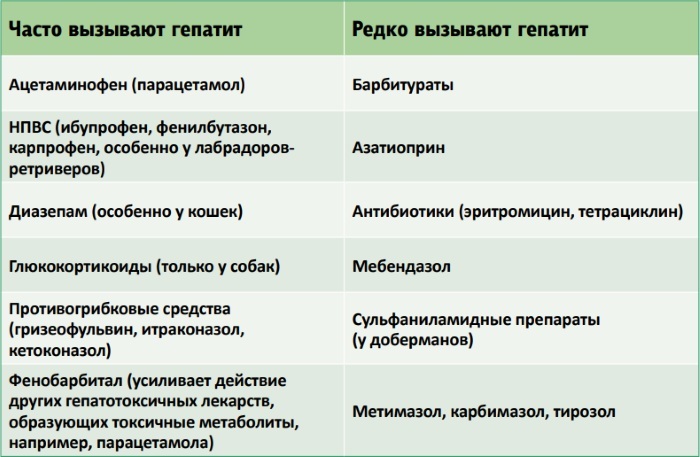
But most often, the development of the pathological process is facilitated by the reception:
- anti-tuberculosis drugs (Isoniazid);
- antibacterial drugs of the tetracyclines group (Dixicyclin), penicillins (Amoxicillin), macrolides (Erythromycin);
- sulfa drugs (sulfadimethoxine);
- hormonal agents;
- non-steroidal anti-inflammatory drugs (Ibufen, Diclofenac);
- anticonvulsant and antiepileptic drugs (Finlepsin, Clonazepam);
- antimycotics (Ketoconazole, Fluconazole);
- diuretics (Furosemide);
- cytostatics (methotrexate);
- drugs that are prescribed to patients with diabetes mellitus, arrhythmia, peptic ulcer.
Diagnosis of the disease
It is important to detect medicinal hepatitis at an early stage, since the damaging factor must be eliminated in a timely manner, otherwise the pathology will progress further. If alarming symptoms appear, you should visit a gastroenterologist as soon as possible.
The specialist must collect an anamnesis of the disease and receive information about the intake of medications, their dosage and the duration of the course of treatment, palpate the organ and give direction to laboratory and instrumental research.
Instrumental methods
A patient with suspected toxic liver damage must be sent for an ultrasound scan. The study allows you to detect changes occurring in the organ, to estimate its size.
Also, the doctor may recommend carrying out:
-
liver scintigraphy. In the course of the study, radioactive isotopes are used, which are introduced into the body, and then their radiation is recorded. The method allows you to assess the shape and size of the affected organ, to detect violations in its structure;
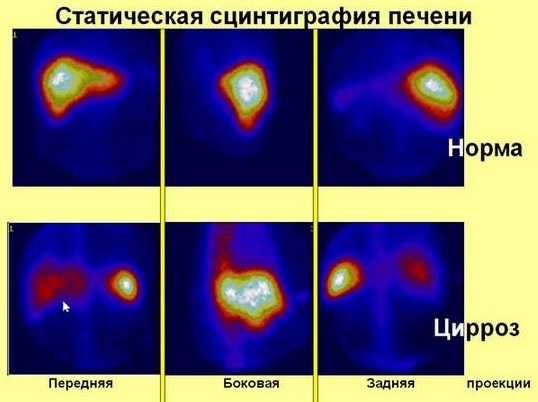
- MRI. It is the most accurate research method. It makes it possible to detect violations even at the initial stage of development;
- liver biopsy. Allows you to assess the severity of inflammation, to establish the causes of pathology.
Laboratory Methods
It is possible to detect deviations in the work of an organ using the following laboratory diagnostic methods:
- biochemical blood test. With the disease, the levels of bilirubin, ALT and AST will be increased, and the activity of alkaline phosphatase also increases;
- coagulograms. Allows you to assess the state of the blood coagulation system;
- general urine and blood tests.
Differential diagnosis
To rule out other forms of hepatitis, it is recommended that enzyme-linked immunosorbent antibody tests be performed. It is also necessary to differentiate the disease from benign and malignant tumors of the liver, oncology of the pancreas, gallstone disease, which have similar symptoms.
Treatment of medicinal hepatitis
Medicinal hepatitis (symptoms and treatment depend on the form of pathology) is a disease, the therapy of which should be carried out under the strict supervision of a specialist. Only a doctor is able to assess the risk of canceling the medication that caused the violations, and choose a more gentle remedy.
Complex measures, which include the cancellation (replacement) of a toxic drug, detoxification therapy and the use of hepatoprotectors are usually sufficient to get rid of the disease in acute form. In the chronic course of the disease, such a course prevents relapse and helps to prolong the period of remission.
To increase the effectiveness of treatment, the patient must adhere to a special diet, excluding all dishes that stimulate and irritate the mucous membranes.
The patient needs:
- limit fat intake;
- increase the amount of protein, vitamins in the diet;
- refuse alcohol, carbonated drinks, packaged juices;
- exclude fatty, fried and spicy foods, smoked meats, canned food.
You need to eat fractionally, consume enough water. Herbal teas, rosehip broth are useful. Food is best cooked or steamed. It is undesirable to use spices and marinades.
You need to eat dishes that are easy to digest. Useful fish dishes, lean meats, porridge. Vegetables and fruits must be present in the menu. You can prepare salads from them, using vegetable oil, low-fat sour cream as a dressing.
Detoxification
The main goal of detoxification measures is to remove toxins from the body.
Therapy can consist of the following stages:
- gastric lavage. It is used if the drugs were taken orally;
-
plasmapheresis. The technique allows you to purify the blood. After taking a part of the patient's blood, it is removed from impurities using a special apparatus, then returned to the body in the changed;
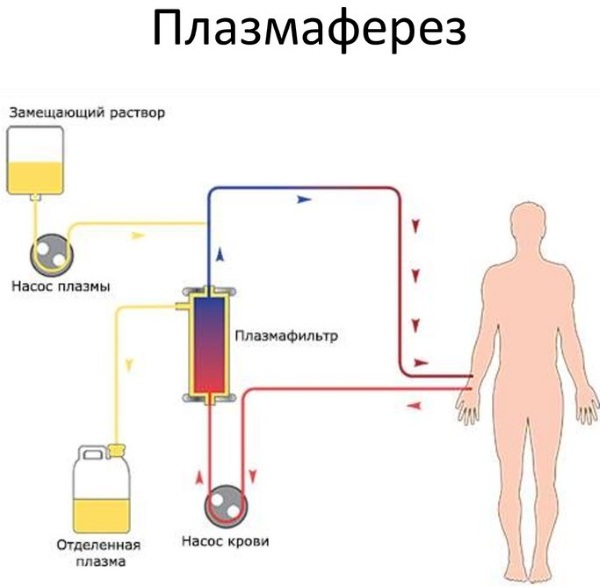
- reception of adsorbents (activated carbon, Enterosgel). The drugs have a detoxifying effect, improve liver function, normalize blood counts;
- using droppers with electrolytes. The procedure helps to cleanse the blood;
- hemodialysis. The technique is used only in extreme cases, if there is a threat to the patient's life. The blood is purified, but it is not required to remove it from the bloodstream.
After the toxins are removed from the body, the cells of the organ begin to regenerate, the signs of toxic effects disappear.
Hepatoprotectors
Such medications protect the cells of the organ from negative influences. Also, due to their intake, inflammation decreases, the risk of pathology becoming chronic is reduced. If the disease was detected already in the chronic stage, then drugs are prescribed for exacerbations in order to stop the symptoms.
Medicines-hepatoprotectors for the treatment of the disease:
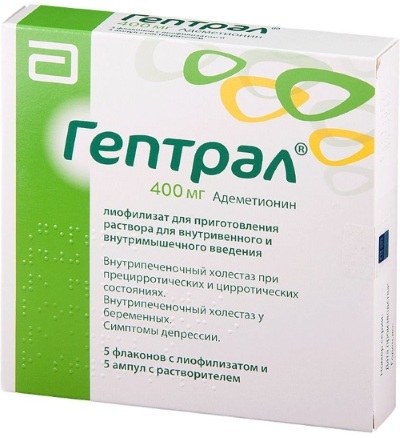
| Name | Active substances | Action | Price |
| Liv-52 | Herbal preparation. Contains powders of chicory, capers, yarrow and other plants. | It has a choleretic and anti-inflammatory effect, tones up and protects against free radicals. | From 303 rub. |
| Essentiale Forte | Essential phospholipids | Normalizes protein-carbohydrate-lipid metabolism, prevents liver scarring, reduces the amount of fat in the blood. | From 583 rub. |
| Heptral | Ademetionine | Neutralizes and removes toxins. It has a choleretic effect, restores liver cells. | From 1594 rub. |
It is also recommended to take choleretic drugs, which, together with bile, remove some of the toxins: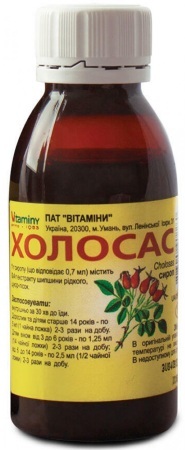
- Holosas. The drug is based on a liquid rosehip extract, which is the reason for its action. Thanks to the use of the drug, the functional properties of the organ increase, the production of bile increases and its viscosity decreases. The product also has anti-inflammatory properties due to the ascorbic acid in the composition. In addition, it normalizes carbohydrate metabolism, accelerates tissue regeneration and increases resistance to adverse external influences;
- Cholenzym. The drug consists of dry bile, dried pancreas and small intestinal mucosa. It helps to improve the condition in hepatitis, normalizes digestion, improves the outflow of bile.
Medicines can be injected into the bloodstream through the skin and mucous membranes using an electrophoresis procedure. Additional exposure to microcurrents allows the drug to be delivered to the very focus of the pathological process.
This helps to reduce the dose of the drug and thereby minimize the likelihood of negative effects, reduce the load on the organ.
Folk remedies
Folk remedies can only be used as an adjuvant therapy. Home treatments cannot be substituted for basic treatment.
In case of illness, it will be useful:
- infusion of calendula. The plant has an anti-inflammatory and antibacterial effect, helps to cleanse toxins. You need 1 tbsp. l. dry raw materials pour boiling water (1 tbsp.). The medicine should be infused for 1 hour, filtered and consumed 4 times a day. Single dosage - 50 ml;
- infusion of chicory. Dry raw materials in the amount of 2 tbsp. l. you need to fill in 2 tbsp. boiling water, leave to infuse for half an hour. Before drinking, you can add honey, lemon juice to the drink. The tool is taken throughout the day in unlimited quantities;
- dandelion roots in the form of a decoction. This drink has an absorbent and cleansing effect. You need 1 tbsp. l. Pour the crushed raw materials with cold water (1 tbsp.), stand in a water bath for an hour, cool and strain. Take the medicine 3 times a day before meals;
- St. John's wort. To prepare a cleansing broth, 2 tbsp. l. herbs need to be poured with water (250 ml) and boiled over low heat for 5 minutes. When the drink cools down, it should be filtered and divided into 4 doses;
- horseradish root. The plant has powerful cleansing properties. Horseradish needs to be peeled and grated, select 2 tbsp. l. and mix with a glass of boiled hot milk, boil for 2 minutes. The filtered remedy is consumed several sips during the day before meals;
- black currant with honey. When used together, such components effectively cleanse and strengthen the liver, eliminate the inflammatory process. You need to take 1 kg of berries. The currants are chopped with a blender and mixed with the same amount of honey. Take the medicine before meals daily;
-
mint infusion. The plant helps to get rid of pains and spasms, eliminates dyspeptic disorders. It is necessary to take 4 tbsp. l. dry or fresh raw materials, pour 0.5 liters of boiling water and leave for 1 hour. Drink a drink instead of tea;

- infusion of corn stigmas. The tool normalizes the outflow of bile. To prepare a medicine, you need 10 g of raw materials to pour 1 tbsp. boiling water, leave for 30 minutes. and use during the day in small sips if pain and discomfort is felt. You need to drink the infusion before eating.
Forecast
How successful the therapy will be depends on:
- how quickly the inflammatory process develops, the number of hepatocytes affected by the effects of medications;
- the presence of concomitant liver pathologies;
- the level of toxicity of the agent used, which caused disturbances in the functioning of the organ.
The patient must follow all the recommendations of the doctor. Those who have previously encountered liver pathologies should be especially careful. You can not self-medicate and prescribe medication for yourself or cancel their intake, as well as change the dosage or duration of the course of therapy. Any deviations in well-being should be a reason for visiting a specialist.
If therapy began when the pathology has passed into a neglected state, the likelihood of a complete and quick recovery is significantly reduced. Perhaps the development of liver failure and cirrhosis, which are fatal.
The main condition for the successful therapy of drug hepatitis is the immediate cessation of exposure to the body of a toxic drug, which increases the chances of a full recovery. It is possible to prevent the development of this disease by refusing to take uncontrolled medications.
Those who are shown long-term therapy with vital medications need to carefully monitor their well-being, regularly donate blood for liver tests. Such measures will help to detect pathology at an early stage and take timely measures to preserve the health of the organ.
Video about toxic hepatitis
Medicinal liver damage:

